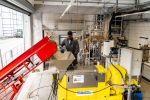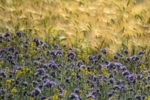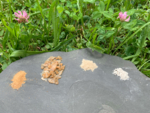-
-
The AlbLavendel project - 20/11/2023

Blue-violet, fragrant fields like those in Provence may soon become a common sight in the Swabian Alb. As part of the AlbLavendel project, the University of Hohenheim along with the company naturamus GmbH and the German Institutes of Textile and Fibre Research Denkendorf has started to investigate the cultivation of lavender, the production of essential oils and the use of distillation residues for producing textile fibres in the local region.
https://www.biooekonomie-bw.de/en/articles/news/swabian-lavender-cultivation-aesthetic-and-sustainable
-
-
Press release - 29/09/2023
The European Parliament’s amendments to the proposal for a Regulation on Artificial Intelligence (AI) may be defined as a socio-ecological turnaround compared to the European Commission’s existing draft. The parliamentary draft proposes a series of environmental and climate-related provisions which, in the Oeko-Institut’s view, are feasible and technically achievable. The Oeko-Institut has reviewed these proposals in a Policy Paper.
https://www.biooekonomie-bw.de/en/articles/pm/ecological-alignment-artificial-intelligence
-
-
-
-
Food of the future: new production methods - 06/09/2023
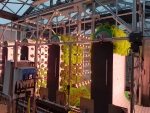
A rapidly growing world population and simultaneously rapidly shrinking arable land – these are just some of the major challenges facing the food industry. But how can solutions be found? Answers are being sought by the bioeconomy innovation space NewFoodSystems. Funded by the German Federal Ministry of Education and Research (BMBF), it is a network where science and industry can come together to develop sustainable food systems of the future.
https://www.biooekonomie-bw.de/en/articles/news/newfoodsystems-innovation-space-tomorrows-food
-
Press release - 30/08/2023
Rising sea levels due to climate change and artificial irrigation cause soil salinity to increase. This has a negative impact on agriculture, including viticulture. The plants die, yields decrease. Researchers of Karlsruhe Institute of Technology (KIT) have therefore studied a wild grapevine of higher salt tolerance. Their goal is to identify the genetic factors that make the grapevine resilient.
https://www.biooekonomie-bw.de/en/articles/pm/soil-salinity-wild-grapevine-defends-itself
-
-
-
-
Innovative materials - 14/06/2023

Conserving wood by producing furniture and other objects from wood-based materials with the help of microorganisms? That is exactly what a team of researchers from the University of Freiburg and the Leibniz Institute for New Materials (INM) in Saarbrücken is working on in the DELIVER project. The aim is to create a database of materials with a broad range of controllable properties for various applications that can be produced from wood waste.
https://www.biooekonomie-bw.de/en/articles/news/reinventing-wood-programmable-bacteria
-
-
Press release - 16/05/2023
This year's Venice Architecture Biennale sees itself as a "Laboratory of the Future". Bio-composites are not just dreams of the future in architecture. The German Institutes of Textile and Fiber Research (DITF) have developed a sustainable material for support profiles and connecting nodes, which will be on display at Palazzo Mora during the Biennale from May 20 to November 26.
https://www.biooekonomie-bw.de/en/articles/pm/bioverbundwerkstoff-auf-der-architektur-biennale-venedig
-
-
Residual materials with potential - 16/03/2023
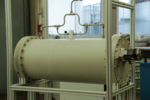
The objective of the PeePower™ BUGA 2023 collaborative research project is to produce green hydrogen and platform chemicals from wastewater. This fits in nicely with BUGA 2023’s (German National Garden Show) four major themes, namely, climate, energy, environment and food security.
https://www.biooekonomie-bw.de/en/articles/pm/peepower-energy-urine
-
-
Think Tank FYI: Agriculture 5.0 - 16/02/2023
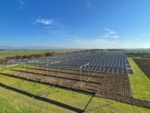
Climate protection, agriculture and biodiversity are closely intertwined. Agriculture 5.0 provides positive guidance, as the Offenburg University of Applied Sciences has demonstrated: agrophotovoltaics (or agrivoltaics), which is currently in vogue in Germany, can be used to generate solar power on high-yield fields. Biomass strips and biochar remove CO2 from the atmosphere. All this improves soil quality and promotes biodiversity.
https://www.biooekonomie-bw.de/en/articles/news/agriculture-50-fighting-climate-crisis-agrophotovoltaics-and-biochar
-
-
Vaccination for plants - 23/01/2023
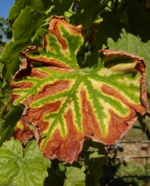
Climate change creates stress. This provides an opportunity for pests to exploit plant weaknesses and reproduce. For the infested plant, this can be catastrophic and often fatal. But instead of continuing to protect harvest yields with toxic substances as before, the transnational DialogProTec project is now taking a completely new approach: researchers want to intervene in the communication between plants and pests to keep them healthy.
https://www.biooekonomie-bw.de/en/articles/news/dialogue-instead-chemical-maze-new-strategy-sustainable-crop-protection
-
Start-up 'Innovation Matters' - 19/12/2022
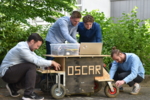
Saffron is one of the most expensive spices in the world, because picking it involves a complex manual process. This treasure therefore comes to us mostly from countries such as Iran with poor working conditions and low wages. A start-up company called Innovation Matters from Baden-Württemberg is now developing a robot-assisted, automated process that will make saffron cultivation attractive in Germany as well as ecological and fair.
https://www.biooekonomie-bw.de/en/articles/news/saffron-cultivation-germany-sustainable-support-robots
-
Project FuTuReS - 12/12/2022
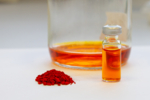
Algae are aquatic organisms that flourish in a huge variety of species. But that's not all: they are also small green mini-factories that can produce all kinds of valuable materials. All they need is water, light, CO2 and a few nutrients that can be recycled from biogas or sewage treatment plants. Researchers have now determined the optimal framework conditions and practicability of process methods for agricultural algae cultivation.
https://www.biooekonomie-bw.de/en/articles/news/microalgae-high-quality-products-domestic-agriculture
-
-
-
-
-
-
-
Project BW2Pro - 29/08/2022
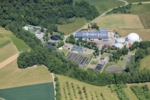
In 2020, Germany’s population collected over 5 million tonnes of biowaste. Most of this was composted, and some was fermented into biogas. Scientists in Baden-Württemberg think there's room for more. Within the project ‘Biowaste to Products’ (BW2Pro) they want to transform biowaste into new products in a biorefinery. The idea is to produce biodegradable plant pots, mulch material, fertilisers, enzymes and biobased plastics in addition to…
https://www.biooekonomie-bw.de/en/articles/news/biowaste-products-biorefinery-transforms-biowaste-new-products
-
-
-
Renaturalised peatlands as carbon dioxide stores - 14/06/2022
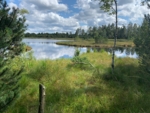
All intact peatlands on our planet store twice the amount of CO2 as all forests. Peatlands are indispensable for preventing and mitigating the effects of climate change. The only problem is that 95 percent of Germany's peatlands have been drained, and thus release around 7 percent of Germany’s total CO2 emissions into the atmosphere. Rewetting is therefore imperative for the climate, the environment and biodiversity – and economically…
https://www.biooekonomie-bw.de/en/articles/news/peatlands-climate-protection-factor-binding-co2-instead-releasing-it
-
Lentil cultivation in a producers’ association - EIP-AGRI Rhizo-Linse project - 23/05/2022
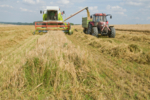
Complicated cultivation, fluctuating yields and complex cleaning: Leisa – as lentils are called in Swabian – are demanding. So to produce lentils economically, 130 farmers in the Swabian Alb have joined forces and set up the organic producers’ association Alb-Leisa. Their lentil harvests are processed and marketed by a company called Lauteracher Alb-Feld-Früchte.
https://www.biooekonomie-bw.de/en/articles/news/cultivation-market-lentils-swabian-alb
-
Lentil cleaning - EIP-AGRI Rhizo-Linse project - 26/04/2022
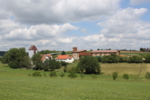
The Altdorf mill, just under 7 km south of the city of Böblingen, has operated lentil cleaning facilities since 2019, the year that the Sessler mill in Renningen, 20 km further north, ceased all operations including lentil cleaning. After receiving a number of enquiries from farmers and local mills, brothers Karl and Jörg Ruthardt took a chance and launched a lentil cleaning operation in addition to their mill and farm shop business.
https://www.biooekonomie-bw.de/en/articles/news/lentil-cleaning-altdorf-mill
-
-
-
-
Lentil cultivation and cleaning on the farm - EIP-AGRI Rhizo-Linse project - 16/03/2022
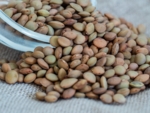
Lentils are among the oldest crop plants in Central European agriculture and were once a popular food in ancient Egypt, Persia and Mesopotamia. The legume was widespread in Germany until the mid-20th century, but has since disappeared completely from farmers’ fields. Over the past decade, lentils have reappeared as a crop grown locally and are cultivated in harmony with nature.
https://www.biooekonomie-bw.de/en/articles/news/lentils-return-heckengaeu-region
-
Alternative foodstuff ? - 09/03/2022
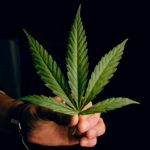
If there were a competition for the ‘crop of the future’, hemp would certainly be at the top. But not because of the intoxicating effect of some hemp varieties. Cannabis has the potential to help supply protein in the quantities required by a growing world population – in a sustainable way. The TASTINO project brings together researchers from academia and industry to work on ways to make the regional superfood available as a vegan alternative.
https://www.biooekonomie-bw.de/en/articles/news/hemp-regional-superfood-and-valuable-source-protein
-
Press release - 02/03/2022
The Ministry for the Environment, Climate Protection and the Energy Sector is funding the new research project RoKKa which is used to prove the viability of recovering raw materials from wastewater. This adds a crucial function to the scope of a conventional sewage treatment plant. Together with the operators of the sewage treatment plants in Erbach and Neu-Ulm, the project partners demonstrate the positive contribution towards climate protection…
https://www.biooekonomie-bw.de/en/articles/pm/die-klaeranlage-der-zukunft-heisst-bioraffinerie
-
-
Press release - 02/02/2022
fischertechnik has set a new milestone with the Animal Friends construction kit, as the building blocks and packaging are largely made of renewable resources and the models depict playful animals in new colours. The company is thereby taking another major step towards sustainability. The bio-based building set recently won the Toy Award, one of the most prestigious awards in the industry.
https://www.biooekonomie-bw.de/en/articles/pm/animal-friends-aus-nachwachsenden-rohstoffen
-
-
-
-
-
Specialized in Sustainability - 30/09/2021
The research project RUN (Rural Urban Nutrient Partnership) explores how waste might be used more efficiently as a resource. In this project, Veronika Fendel investigates how recyclable materials from biowaste and domestic wastewater can be fed back into the material cycle in the best possible way.
https://www.biooekonomie-bw.de/en/articles/pm/circular-economy-future
-
Press release - 30/08/2021
In August 2021, the BioMat Pavilion 2021 was inaugurated on the campus of the University of Stuttgart in a ceremonial setting and in compliance with the hygiene concept. The core of the elegantly curved lightweight construction is an active-bending structure made of natural fibers, reminiscent of bamboo. It was developed as part of the "LeichtPRO" research project.
https://www.biooekonomie-bw.de/en/articles/pm/biegsam-wie-bambus-belastbar-und-leicht
-
Plastics from the field - 12/08/2021
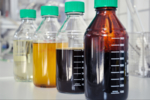
Huge amounts of waste are produced both during food production and by consumers. The Conversion Technologies of Biobased Resources group at the University of Hohenheim’s Institute of Agricultural Engineering has developed a process to convert this biomass into hydroxymethylfurfural (HMF), the highly potent basic chemical that is used to produce plastics.
https://www.biooekonomie-bw.de/en/articles/news/great-potential-biological-residues
Website address: https://www.biooekonomie-bw.de/en/search
